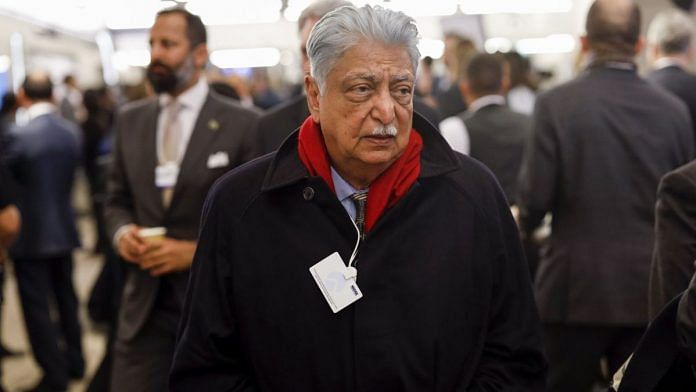New Delhi: Indian billionaire Azim Premji cautioned states against diluting already lax labor laws, saying this was the time for shielding the economically vulnerable from hardships caused by a nationwide lockdown.
“It was shocking to hear that various state governments, encouraged by businesses, are considering suspending — or have already suspended — many of the labor laws that protect workers,” Premji, the founder of Indian software services provider Wipro Ltd., wrote in the Economic Times newspaper. “The migrant workers we find fending for themselves and their families have almost no social security and too little — not too much — worker protection.”
Migrant workers form part of India’s vast informal sector and are among the worst hit by the shutdown imposed since March 25, as businesses shuttered operations and left them with no jobs and incomes. With Prime Minister Narendra Modi relaxing some of the restrictions to enable the resumption of economic activity, workers’ interests appear poised to be hurt further as some states suspend a variety of labor laws to make doing business easier for the industry.
The labor laws being considered for suspension relate to settling industrial disputes, occupational safety, health and working conditions of workers, and those related to minimum wages, trade unions, contract workers, and migrant laborers, Premji wrote.
“It will only exacerbate the conditions of low wage workers and the way we do business and industry,” he said, while calling for more measures to boost the economy, including scaling up the existing rural employment guarantee program and introducing an urban employment guarantee plan.
Modi has pledged a $265 billion package to support the economy, including offering cheap credit to workers and farmers hurt by the lockdown.
Premji is not the only industry captain to voice his concerns on the treatment of workers. Rajiv Bajaj, managing director of Bajaj Auto Ltd., has criticized India’s handling of the lockdown. In an interview, Bajaj called the extension of the lockdown to contain the virus as “piecemeal, arbitrary and erratic.” –Bloomberg
Also read: RSS-backed BMS condemns withdrawal of labour laws by BJP-ruled states, announces protest




1. It is good to know that WIPRO chairman has publicly rebuked those who have demanded suspension of labour laws as an incentive to set up new businesses. 2. Let us try to understand who may have made a demand for suspension of labour laws for a period of three years and what will be achieved by such suspension. It is obvious that right now all the State governments are already facing a fall in revenue. Not one of them has ever provided for any emergency like covid-19. These governments have no money to setup new industrial units, etc., through which new jobs may be created. Perhaps assumption is that private sector will be incentivized to create jobs by suspension of labour laws. This is only an assumption. 3. Assuming that businessmen setup new businesses and create new job opportunities, taking advantage of incentives like suspension of labour laws, there is no guarantee that jobs so created will be permanent jobs. Further, if their businesses are adversely impacted by external factors like fall in demand or increase in cost of production of their products, who can provide owners of such businesses any assistance? 4. It is of course true that no country can become a developed country if it does not invest in its human capital, or if it does not increase the share of labour in the country’s wealth. To achieve full development potential every democratic country like ours must make ensure that there is a right balance between capital and labour rights. Let us also admit that achieving right balance between capital and labour is not at all an easy task. Incidentally, in public sector enterprises, wherein all labour laws are followed, what is the picture? In many such enterprises, both profitability and productivity are not satisfactory. In short, we are in what is called ‘a catch 22’ situation.